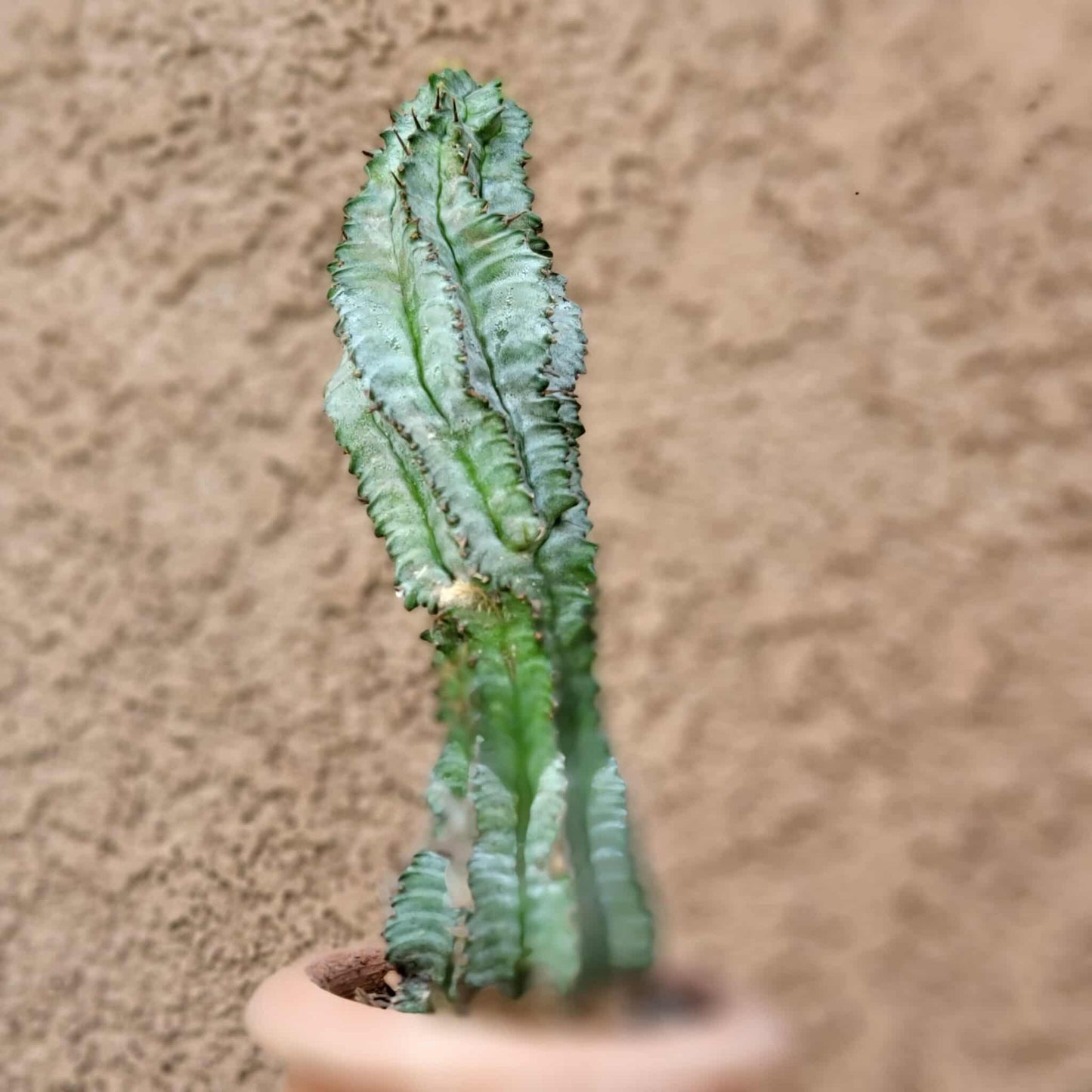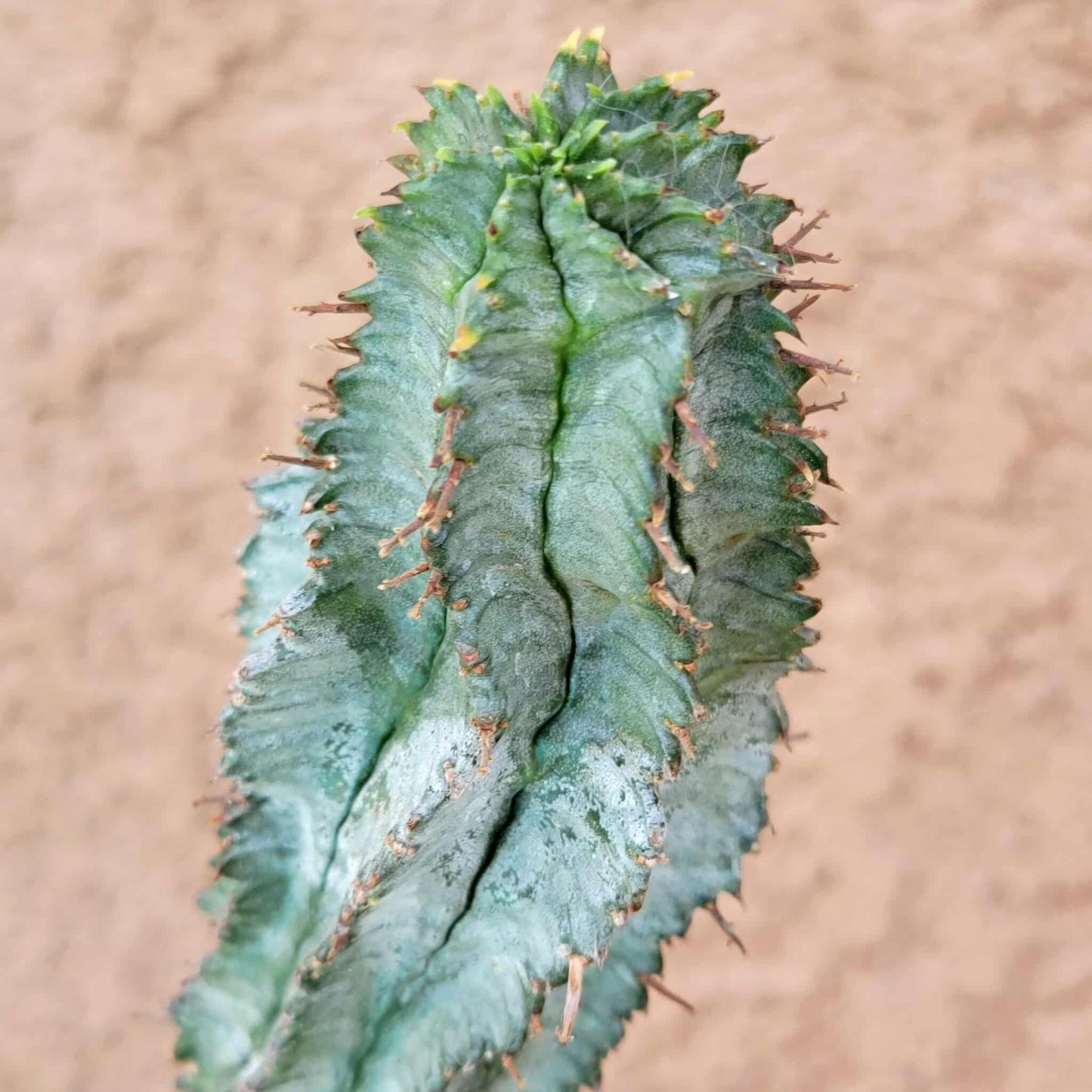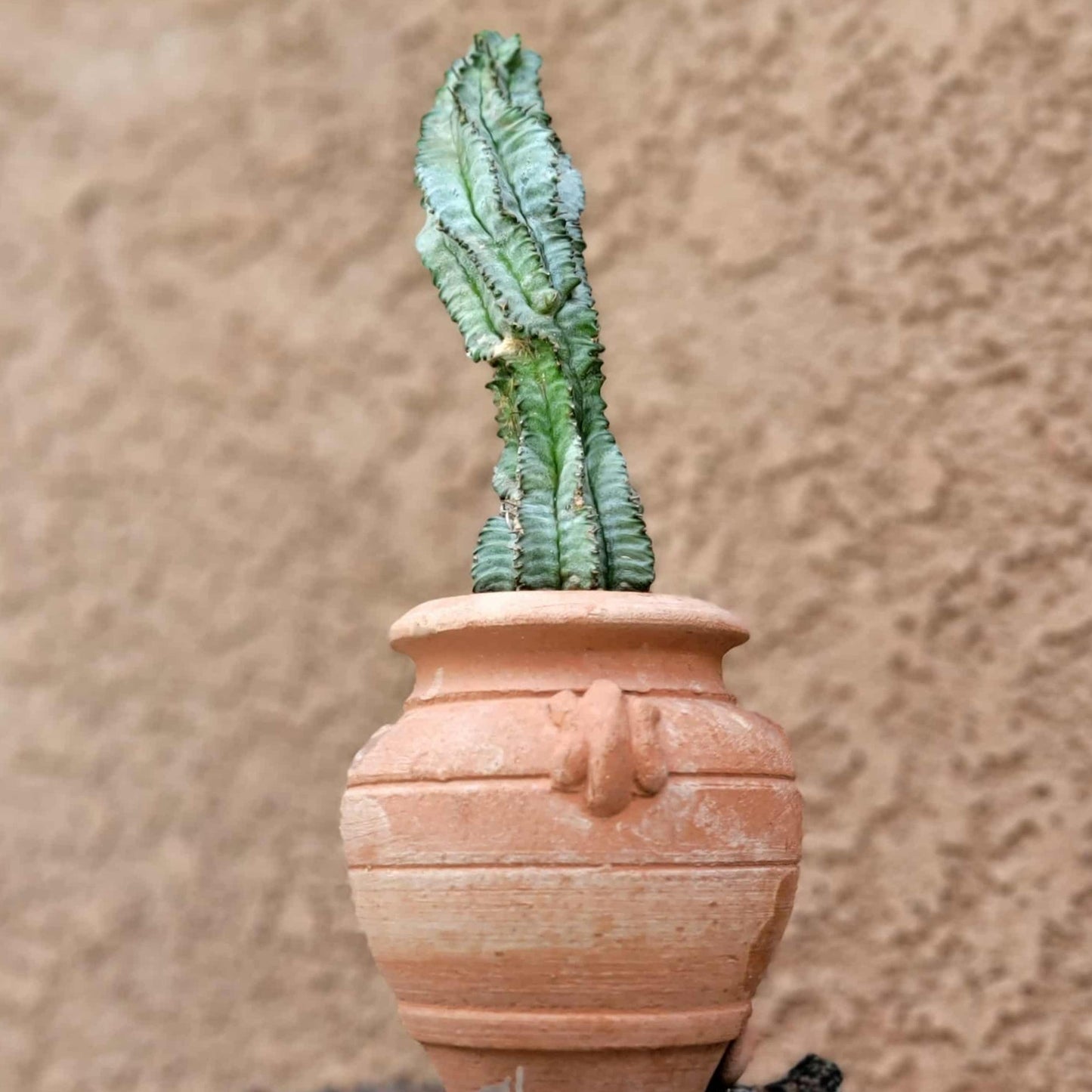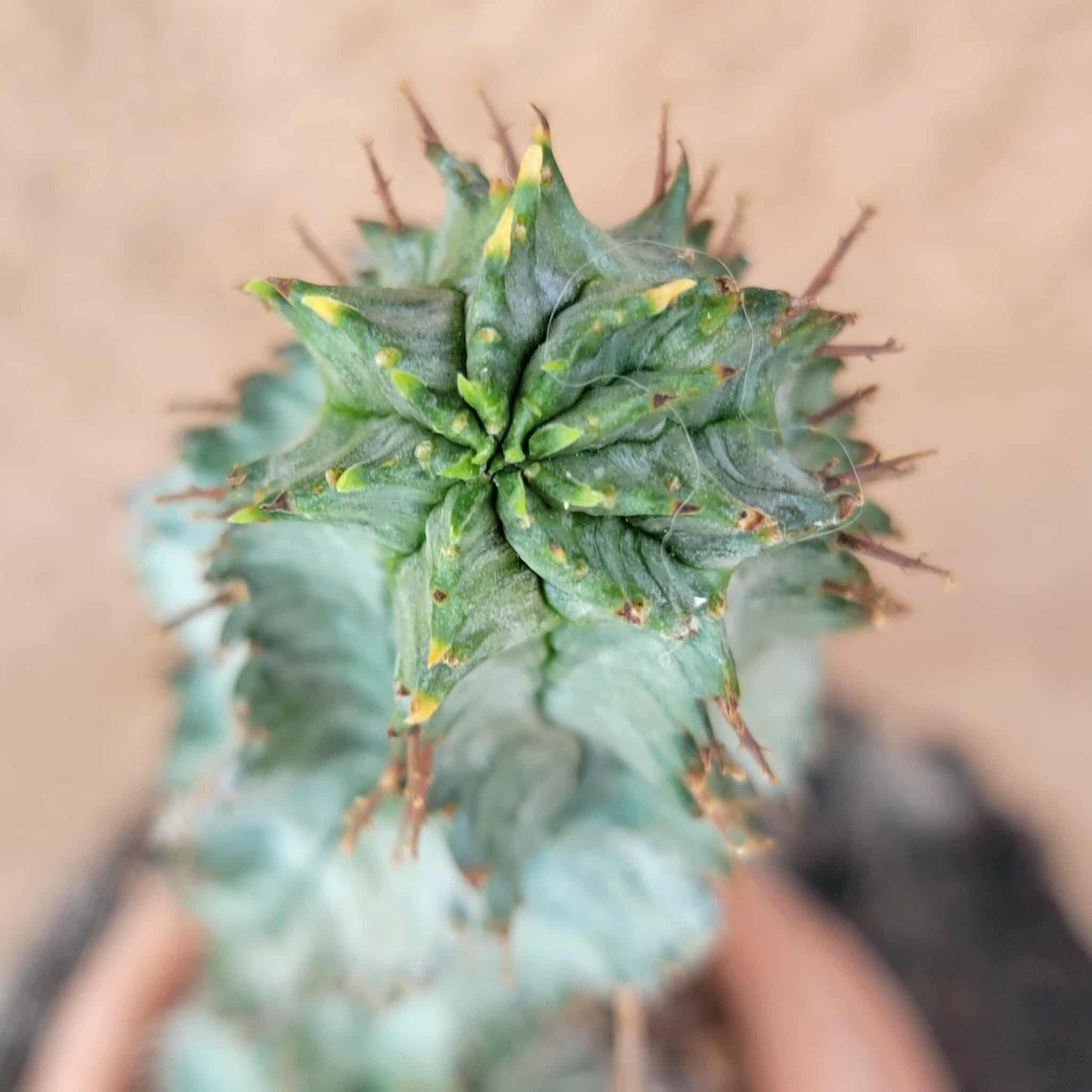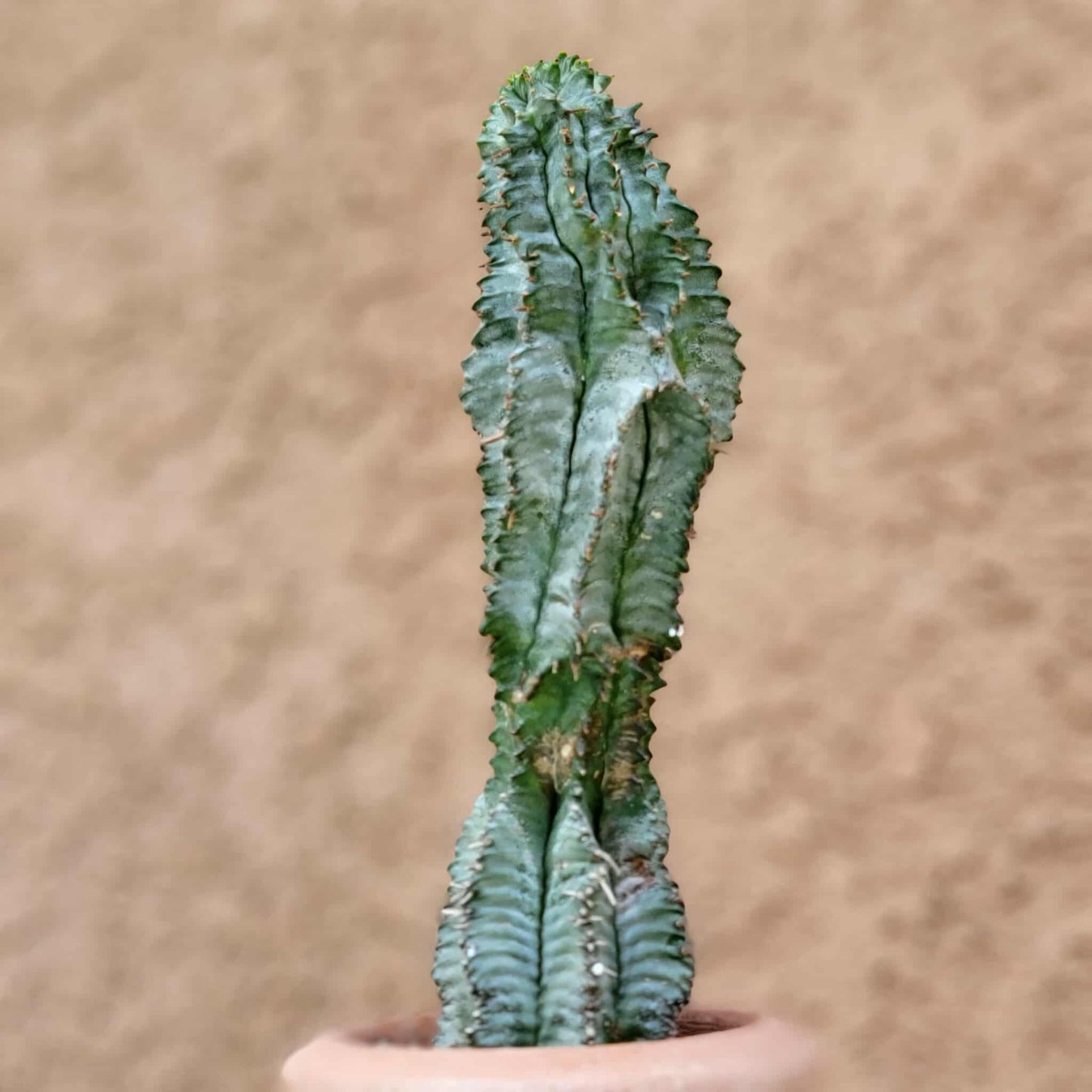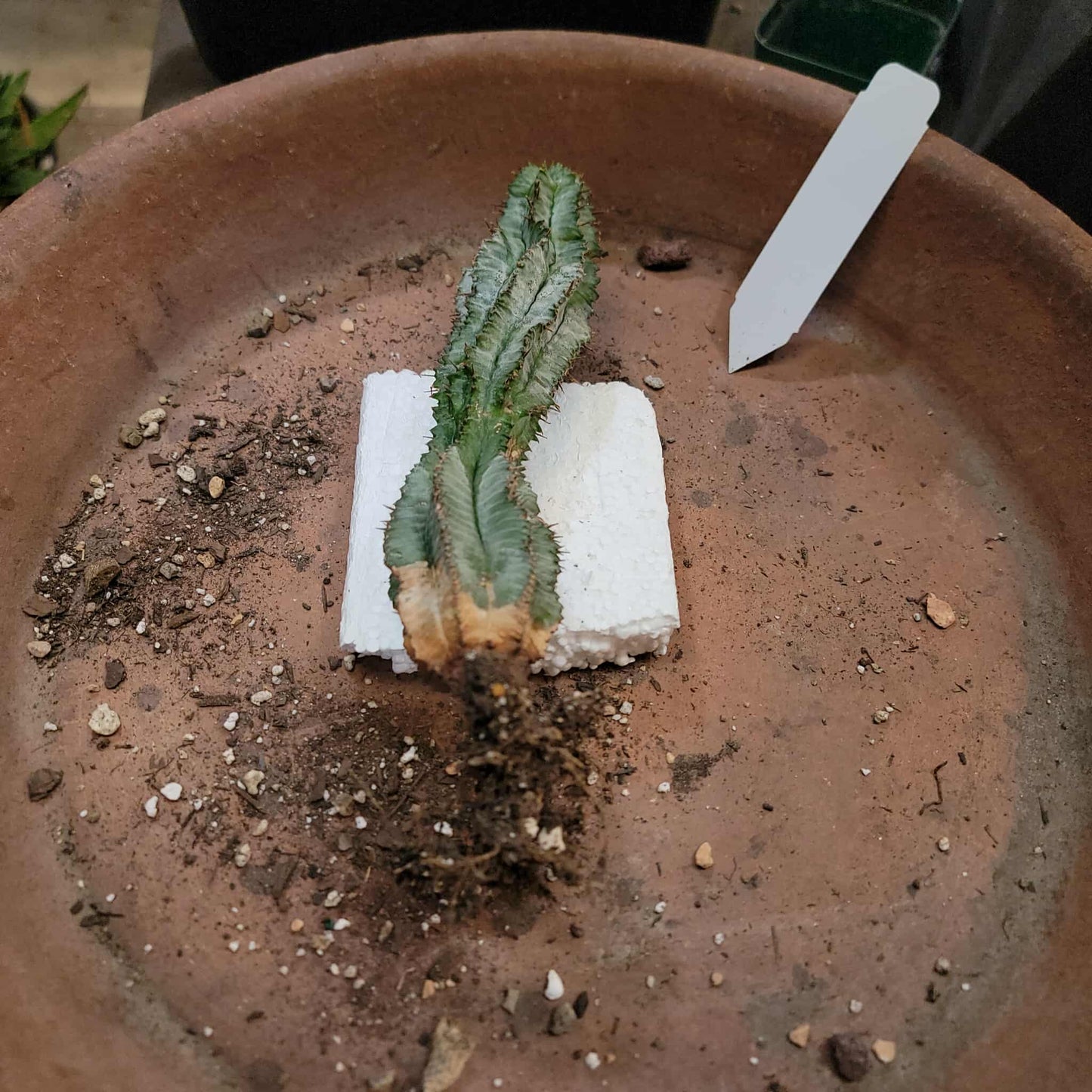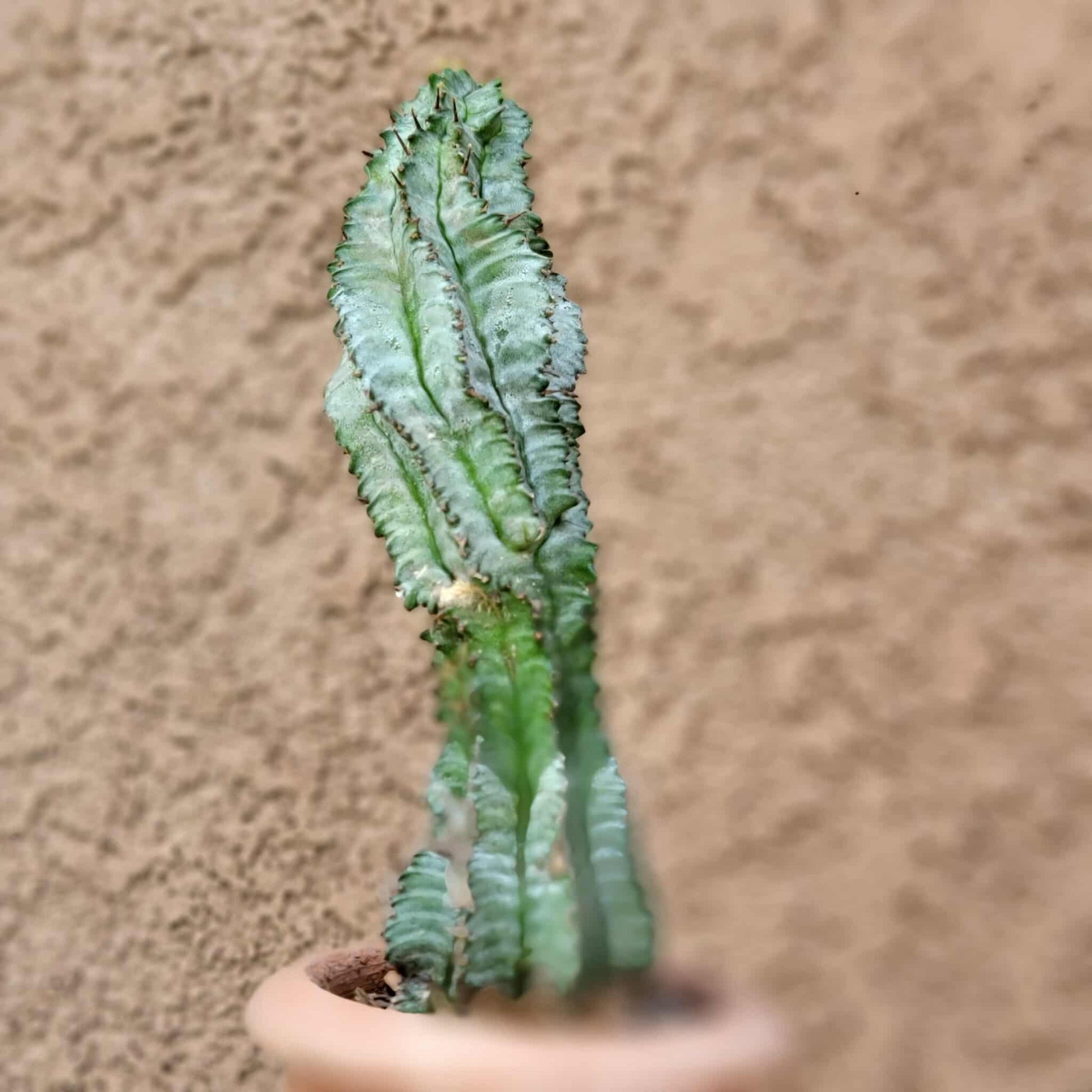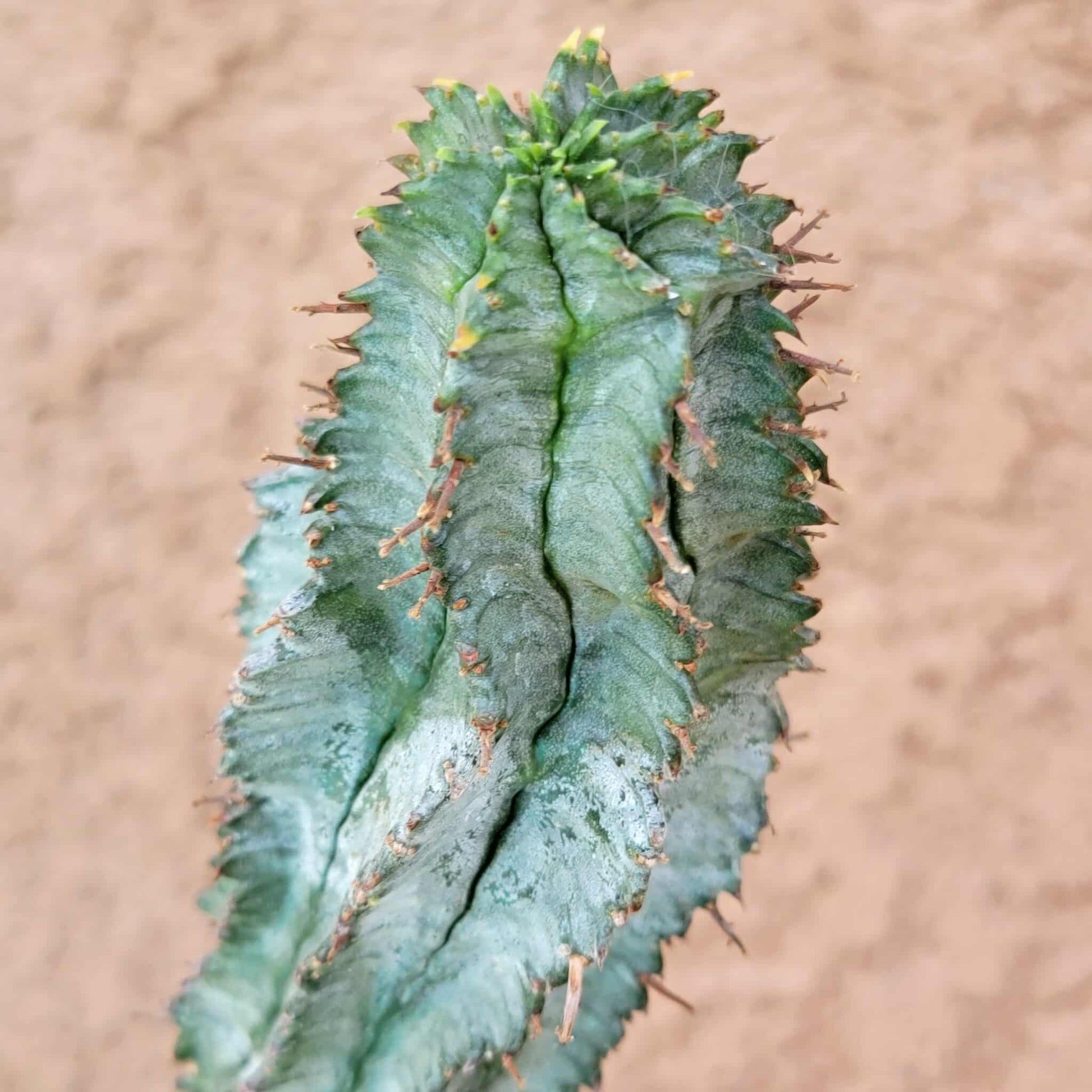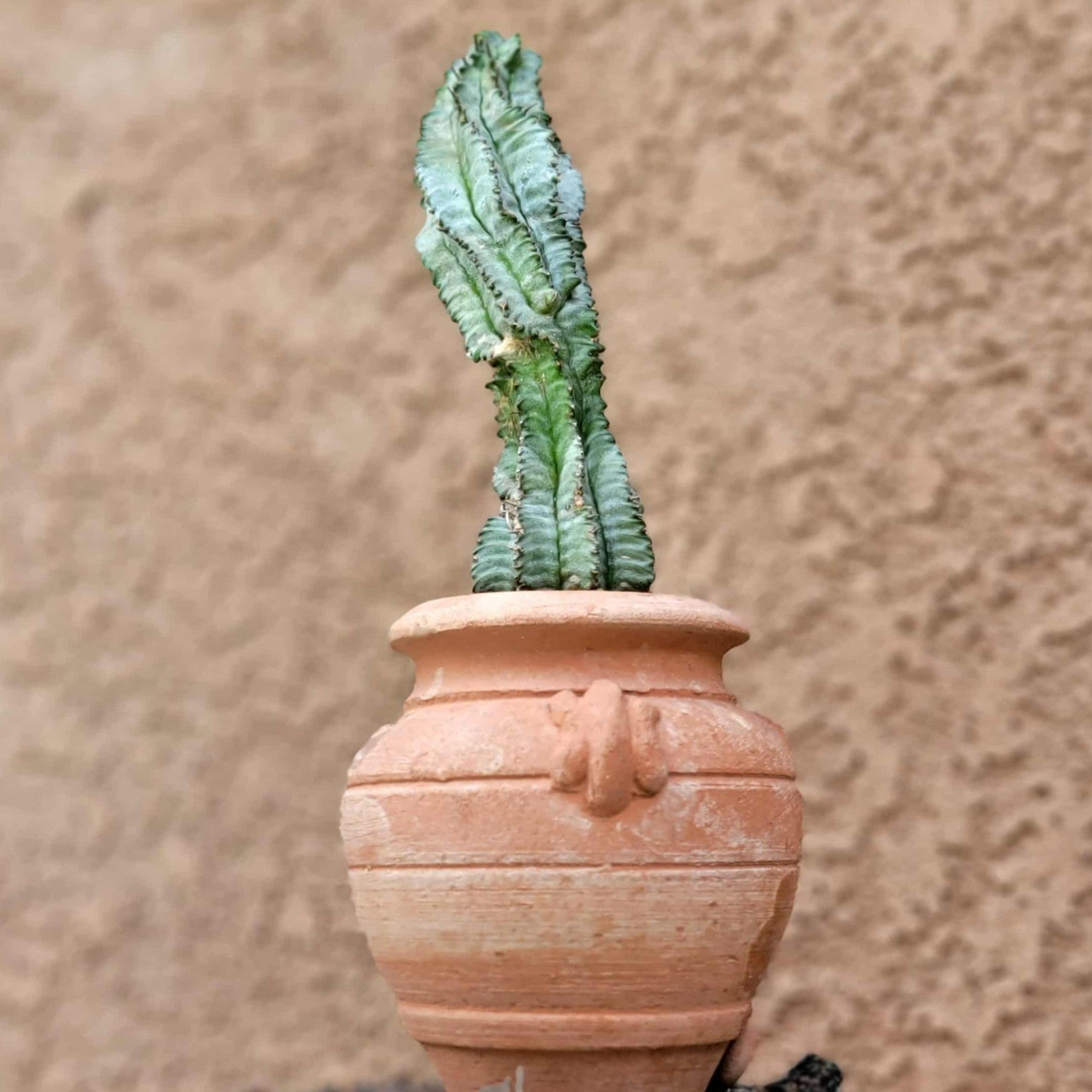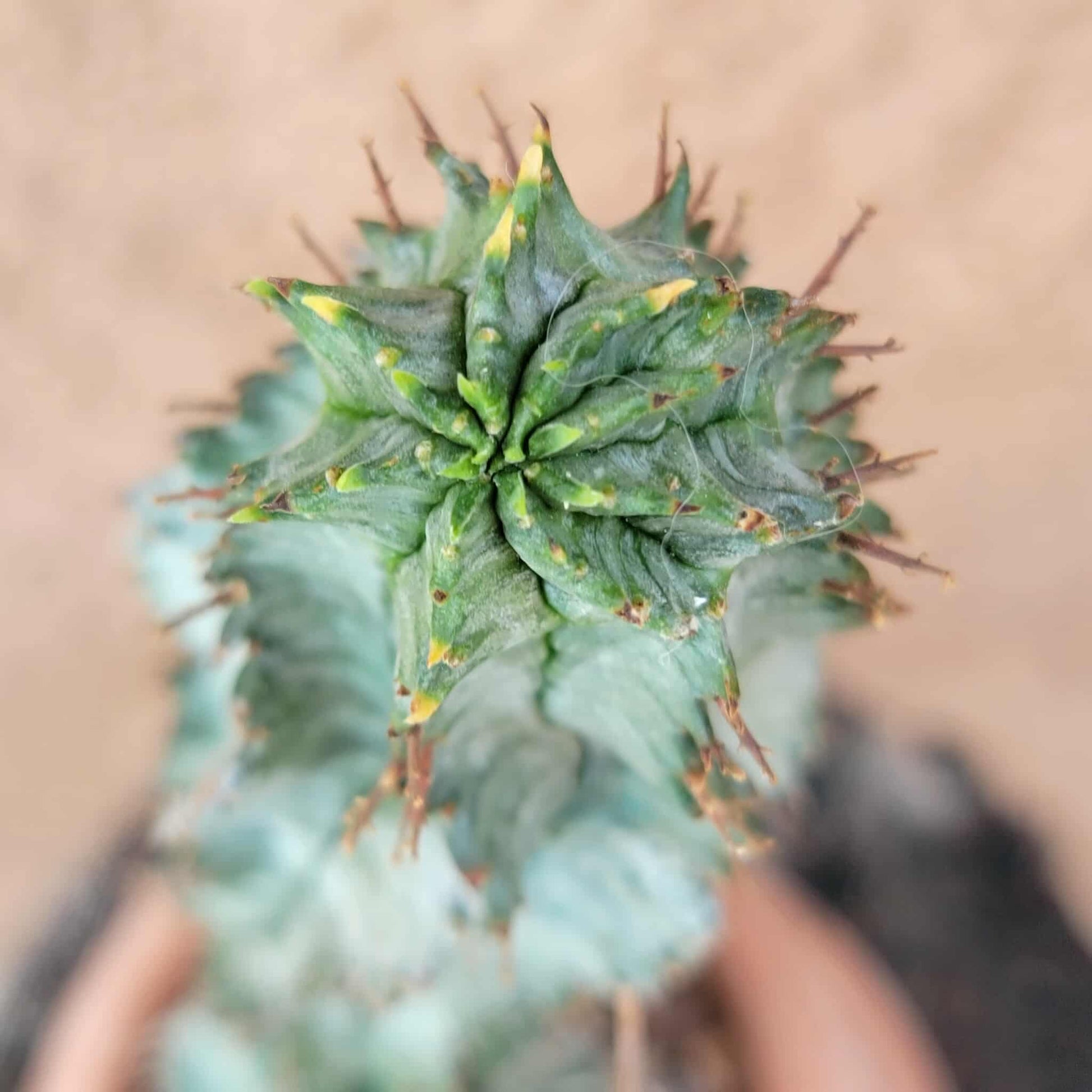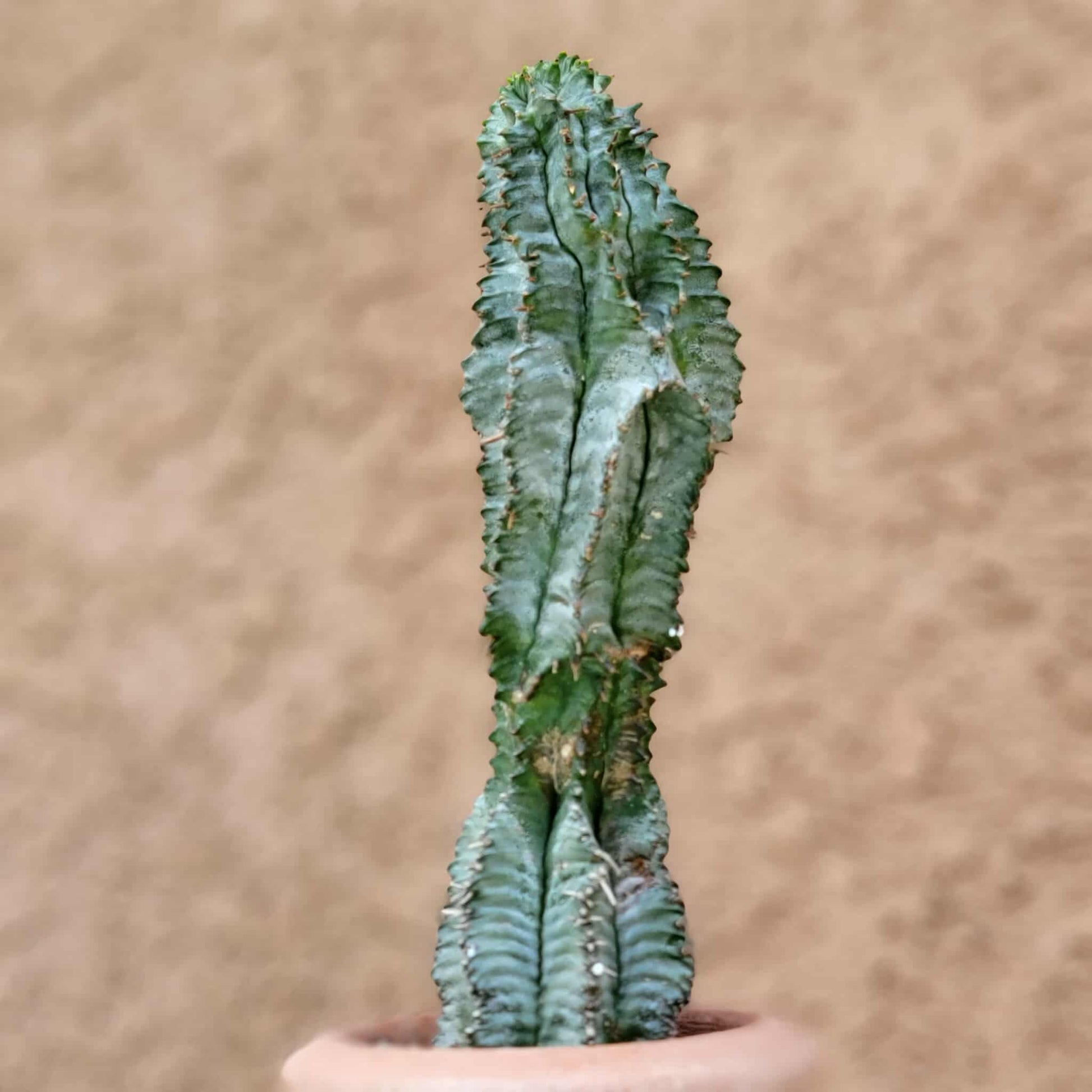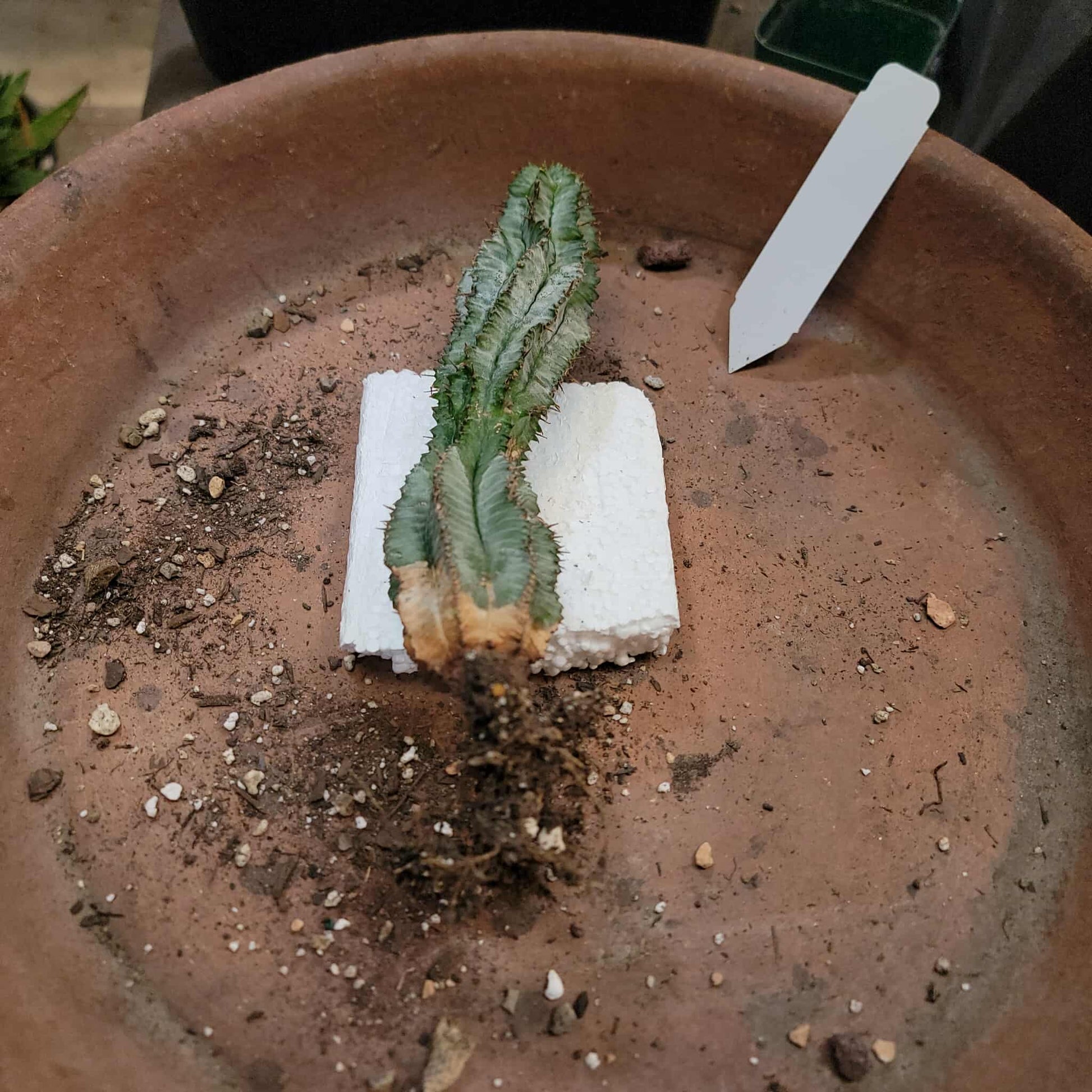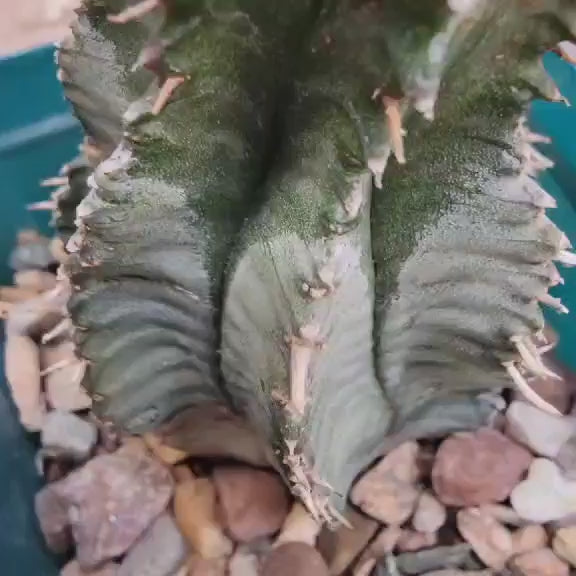Shangri-Ha Cactus Ranch
Euphorbia horrida 'Ice Storm'
Euphorbia horrida 'Ice Storm'
Couldn't load pickup availability
Euphorbia horrida 'Ice Storm'
We just love these horridas!!
You will receive a specimen similar to the one shown here.
Measures 6 - 7" tall.
Showcased here in Tuscan Terra Cotta planter (sold separately).
Roots as shown.
Will be shipped bare root.
Euphorbia horrida 'Ice Storm' is a variety of the African milk barrel, a popular succulent known for its dense clusters of fat, bluish-green stems. It is a cultivar selected for its specific, attractive appearance, with a chalky-white, opaque surface that appears particularly striking in sunlight.
APPEARANCE
· Stems: Grows in dense, clumping mounds of thick, columnar stems.
· Color: The stems are bluish-green, coated with a prominent white, waxy farina. The opaque, white coating gives the plant its "Ice Storm" appearance, suggesting a frosting of ice or snow.
· Spines: Like the standard Euphorbia horrida, it features stiff, brownish spines along its ridges. These spines are the dried remains of flower stalks.
DISTINCTION FROM OTHER VARIETIES
· 'Snow Storm': This variety often causes confusion with 'Ice Storm'. Some sellers use the name 'Snow Storm' for the same plant, and for variegated Euphorbia horrida with white or creamy streaks.
· 'Snow Flakes': A variant of Euphorbia horrida with a variegated pattern of white and creamy streaks, giving it a distinctively "frosty" appearance.
CARE REQUIREMENTS
· Light: Requires abundant, direct sun exposure. Place it in a sunny window or outdoors in a location with full to partial sun.
· Watering: As a succulent, it is drought-tolerant and sensitive to overwatering. Use a "soak and dry" method, allowing the soil to dry out completely between waterings. Reduce watering significantly during its winter dormancy.
· Soil: Needs a well-draining, sandy mix. You can use a commercial cactus or succulent mix, amended with pumice, perlite, or sand for extra drainage.
· Temperature: Not cold-hardy. Protect it from freezing temperatures and bring it indoors if your climate drops below 30°F (-1.1°C).
· Toxicity: All Euphorbia species produce a white, milky latex sap that can cause skin irritation, allergic reactions, and eye damage. Always wear gloves and eye protection when handling.
CULTIVATiON TIPS
· Propagation: You can propagate it by taking offsets (pups) from the base or from stem cuttings.
· Pests and diseases: Primarily susceptible to root rot from overwatering and mealybugs in warm, humid conditions.
· Handling: Due to the toxic sap, handle the plant with care. Keep it away from children and pets.
